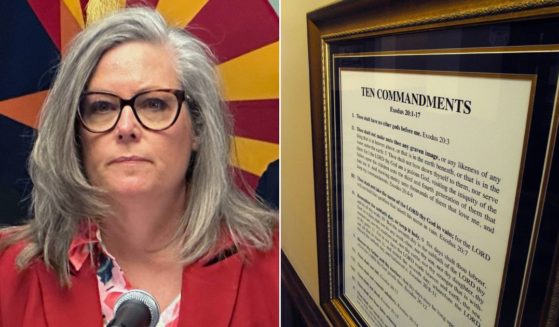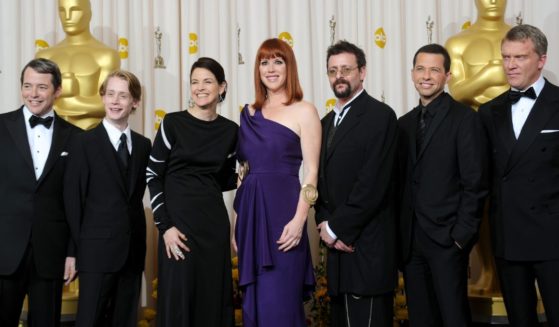Oldest Known Map of the Stars Found Hidden Under Christian Text - God's Creation Always Fascinated Humans
Long before the birth of Jesus Christ, ancient astronomers looked to the heavens, fascinated by the mystery and majesty of the stars.
One of them was a Greek astronomer named Hipparchus, who looked upon God’s handiwork night after night until he tried to measure and describe all of what he saw. His work, although legendary, was lost to the future.
Until now.
Glimpses of the work of Hipparchus’ star catalog have been found in a document more than 1,600 years old.
The Museum of the Bible announced that a copy of Hipparchus’ map of the stars was found on the same bit of manuscript that had a later Christian treatise written upon it.
Discovery alert! 💫 Scholars have found the earliest known, scientifically precise star chart hidden in a medieval codex at Museum of the Bible.
Read more about this exciting discovery in Nature: https://t.co/tvV33QsuR4. 🌌 🔭 #newdiscovery #museumresearch pic.twitter.com/op1jZ1ddW1
— Museum of the Bible (@museumofBible) October 19, 2022
A study documenting the find was published Oct. 18 in the Journal for the History of Astronomy.
“Hipparchus’ Star Catalog is the very first attempt in human history to precisely measure the positions of the fixed stars,” study co-author Victor Gysembergh, a historian at the French National Center for Scientific Research, said, according to Vice. “It is a major milestone in the birth of science as a collective endeavor to measure and predict our surroundings.”
“This star catalog that has been hovering in the literature as an almost hypothetical thing has become very concrete,” Mathieu Ossendrijver, a historian of astronomy at the Free University of Berlin, said, according to Nature.
Smithsonian Magazine reported that experts were able to take the description of the Corona Borealis constellation in the discovered fragment and — based upon the calculated movements of Earth over time — determine that it was the position of the constellation in 129 B.C.
That is about 300 years before the work of Ptolemy.
The document, written around 600 A.D., was a copy of what was presumably a copy of the original. Then, around 1000 to 1100 A.D., the manuscript material it was written upon was cleaned to allow a monk to write a copy of John Climacus’ “Ladder of Divine Ascent” upon it, according to CNN.
“The newly discovered text is a remarkable breakthrough that highlights the creative use of multispectral imaging technology to read previously lost texts,” Brian Hyland, the Museum of the Bible’s associate curator of medieval manuscripts, said, according to CNN. “It also attests to the accuracy of Hipparchus’s measurements.”
The museum said the initial manuscript was compiled by a Greek scholar, and it was overwritten by a scribe at the Greek Orthodox St. Catherine’s Monastery, located in Egypt’s Sinai Peninsula.
Scholars have been searching for the Greek astronomer Hipparchus’s star catalog for centuries. Now, thanks to a technique called multispectral imaging, they have found what seems to be its first known remnants.https://t.co/29bxY7nP1X
— Ars Technica (@arstechnica) October 22, 2022
The scribe who compiled the treatise used multiple older manuscripts for his work, the museum said.
It said it conducted multispectral imaging of the document from 2013 through 2018 before sending the results off to experts to study.
Gysembergh noted that the work in the document was done before telescopes had been invented, according to Scientific American.
“It represents countless hours of work,” he said.
Truth and Accuracy
We are committed to truth and accuracy in all of our journalism. Read our editorial standards.












